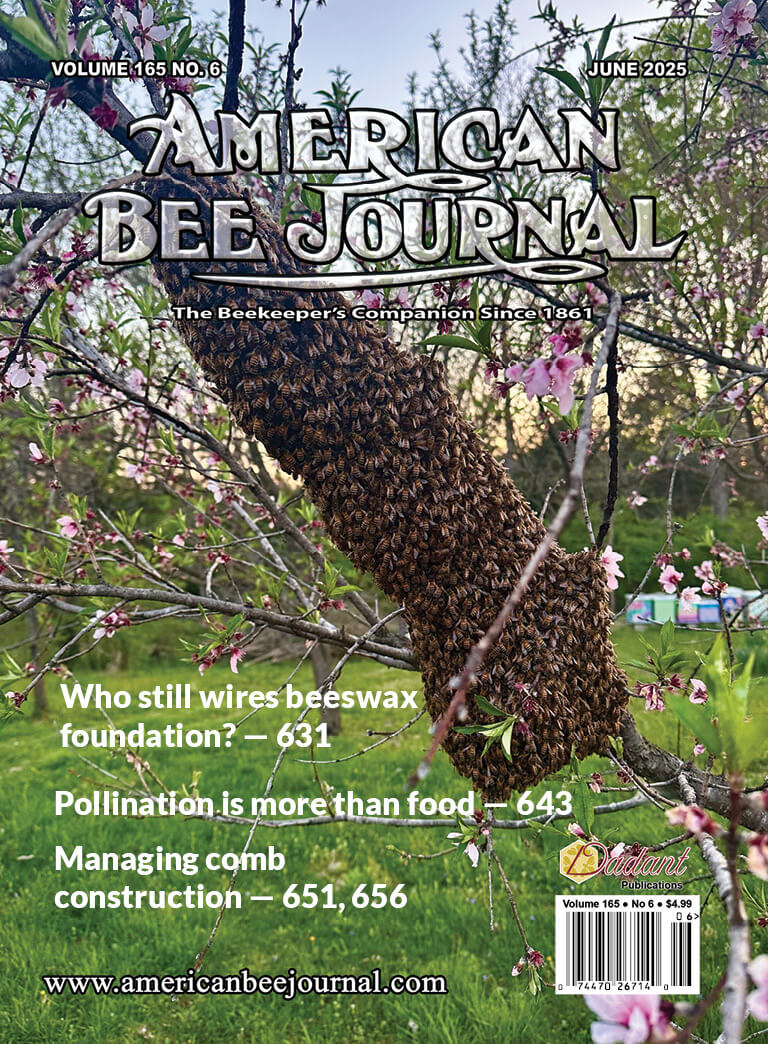Question 1: WHEN TO TREAT?
When’s the best time to put Apistan strips in hives? Right now?
Missouri Beekeeper
Answer 1:
Well it should have been last August/September. If your bees are still alive, you could treat now. Do a survey of how many mites per 100 bees first. If it is 5 or over treat. There is some level of resistance of Varroa to Apistan. I would use Apiguard first, then resample.
Question 2:
I didn’t see any mites though I didn’t look very hard, so I don’t think they are overly infested with mites. Would you treat them anyway?
Answer 2:
If you are simply relying on vision, by time you can see them it is too late. I wouldn’t treat until I sampled/surveyed. Do me a favor and give the attached (http://honeybeehealthcoalition.org/varroa) “Tools for Varroa Management Guide” from the Honey Bee Health Coalition your undivided attention for 30 mins. Let me know what you think?
Question: DEAD BEES COMING OUT OF WINTER
I enjoy your very informative articles each month. I have been beekeeping in central New York for a number of years with good success in overwintering with minimal losses of bees. This spring my losses are already quite severe, even though the mite count was low last fall. I would like to send samples of my dead bees to a Bee Lab to try and determine why my losses are so great. It would appear it was possibly caused by the corn planting and spraying conducted last year, not far from my bee yard. Could you please send me the Bee Lab address and proper procedure for sending the bees and the associated fees required? Looking forward to your reply.
Mikel “B”
Answer:
I am not sure that trying to tie in over wintering losses to possible chemical exposure months later will work. Your State Dept. of Ag. should be looped in as well to lodge a concern.
Overwintering honey bees has always been a challenge, just more so now with genetics that might not be the most conducive, varroa, varroa/virus complex, food reserves and, of course, temperatures and how long the bees were confined between cleansing flights.
The rule of thumb for varroa control is that if varroa is at or above 5 per 100 bees in September that colony is dead, they just don’t know it yet.
The link to the USDA disease ID Service is below with all the information you may need. And the link to the Honey Bee Health Coalition’s Reporting guide is right next to it. All the Best, Jerry
http://www.ars.usda.gov/Services/docs.htm?docid=7473
HBHC’s guide to reporting a bee kill – http://honeybeehealthcoalition.org/wp-content/uploads/2015/05/Quick-Guide-to-Reporting-a-Bee-Kill-Incident-Final-03062015.pdf
Question 1: NOSEMA or DYSENTERY or …..?
Hi, my name is Delbert Showalter and I am sending you pictures of my hives. This is the first year I’ve been able to get bees this close to spring and I’m very excited about the prospect of starting with over wintered hives. I know it is too soon to celebrate yet, but they are looking good. My question is: Is the great amount of bee poop on the hives normal or is it Nosema. If so, how do you treat for it if they are not taking syrup yet?
Thanks!
Delbert Showalter
Answer 1:
They are certainly having a digestive issue. Are you offering any pollen substitutes? You said they were not taking sugar syrup. What kind of feeder are you using for syrup? Where do you live and how long were they confined until they got out for their first cleansing flight?
Let me know.
Question 2:
I live in Southeastern Minnesota and they just got out for their first flight here about three weeks ago (Feb), so I imagine they had quite a backlog. I have mason jars with holes in the lids for feeders. I did give them some pollen patties about two weeks ago and they have not done much with them. The one thing I should maybe change is the syrup. I had some heavy syrup left from last fall. Should I switch to the spring recipe?
Answer 2:
Thank you Delbert. That all makes sense and puts it into perspective. You live in a location where in winter a honey bee colony can be confined for weeks. But they still must eat high energy honey, sugar syrup or both to provide calories to generate heat. If these ‘carbs’ are relatively pure without any fiber or roughage, the long weeks of confinement without a gut and rectum full of feces is a good thing. If bees have fecal material that has to been held for weeks, then this …


